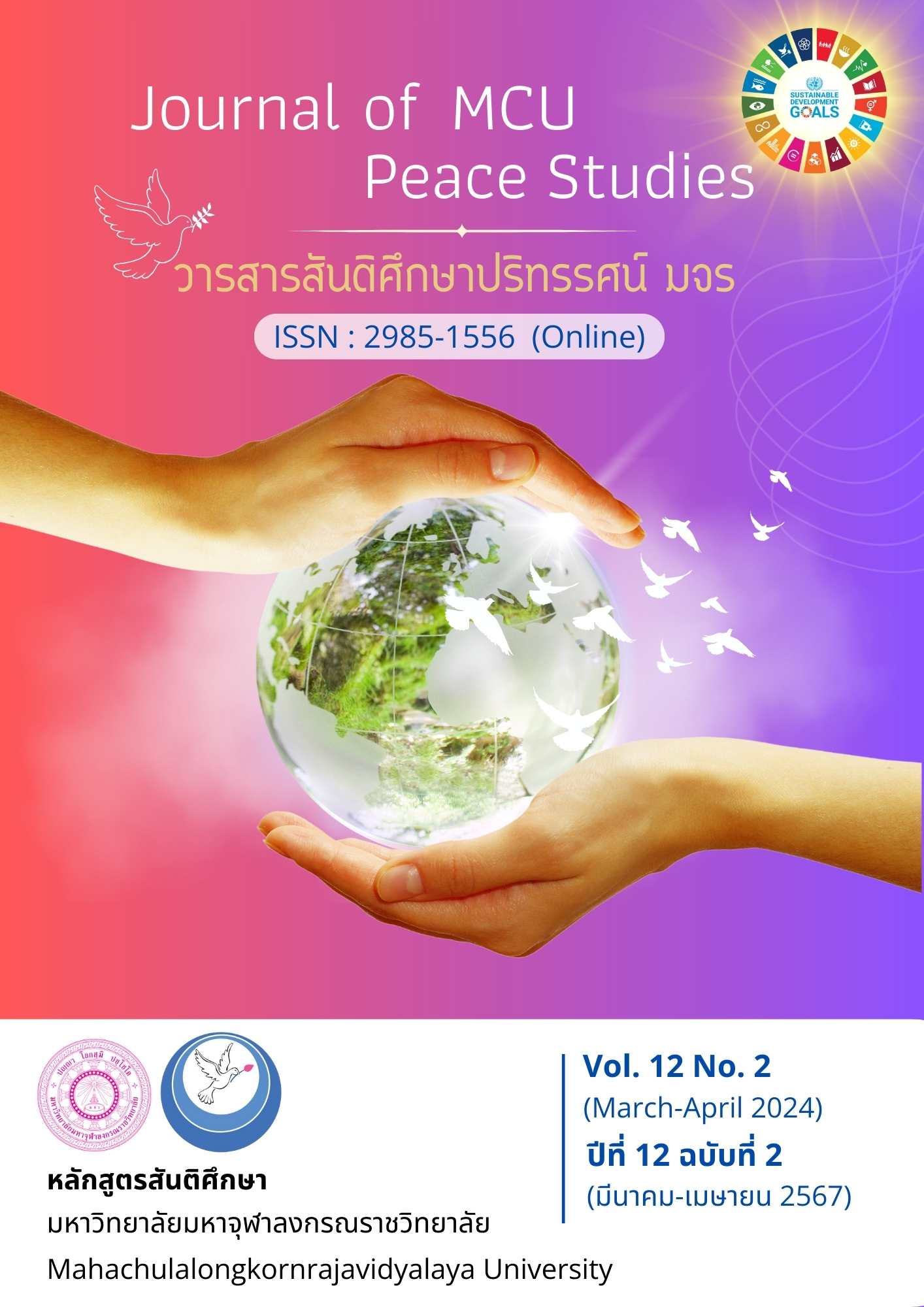The Competitive Advantages of Administrative Policy and Education Quality Management Process Innovation for Chinese Students in Thailand
Main Article Content
บทคัดย่อ
The objectives of this research were 1. to study the level of administrative policy variables quality management process Innovation and competitive advantage educational management of Chinese students in Thailand; 2. to study the influence of administrative policy variables quality management and process innovation towards competitive advantage educational management of Chinese students in Thailand; 3. To create a competitive advantage model educational management of Chinese students. This research uses a combination of methods between quantitative and qualitative research, in quantitative research sample is the project leader educational management of 320 Chinese students in Thailand. The size of the sample was determined by using the 20 times the observation variable criterion. The proportional random sampling method was used a questionnaire to collect data. Data was analyzed by structural equation modeling. For qualitative research, in-depth interviews were used. The main contributor was the project leader educational management of 24 Chinese students in Thailand. The research results were found as follows; 1. Administrative policy, variables quality, management process innovation, competitive advantage, Education management of Chinese students in Thailand at a high level. 2. Administrative policies quality management process innovation influencing competitive advantage education management of Chinese students in Thailand statistically significant at the .05 level. 3. The competitive advantage model, educational management of Chinese students developed by the researcher called the PQI Model.
Article Details

อนุญาตภายใต้เงื่อนไข Creative Commons Attribution-NonCommercial-NoDerivatives 4.0 International License.
ทัศนะและความคิดเห็นที่ปรากฏในบทความในวารสาร ถือเป็นความรับผิดชอบของผู้เขียนบทความนั้น และไม่ถือเป็นทัศนะและความรับผิดชอบของกองบรรณาธิการ ยินยอมว่าบทความเป็นลิขสิทธิ์ของวารสาร
เอกสารอ้างอิง
Arrieta, MdC, & Avolio, B. (2020). Factors of Higher Education Quality Service: The Case of a Peruvian University. Quality Assurance in Education, 28(4), 219-238.
China's Ministry of Education. (2019). China’s International Higher Education Policies 2010-2019: Multiple Logics and HEI Responses. Higher Education, 83(3), 695-710.
Cronbach, L. J. (1951). Coefficient Alpha and the Internal Structure of Test. Psychometrika, 16(3), 297-334.
Hair, J. F., Ringle, C. M., & Sarstedt, M. (2011). PLS-SEM: Indeed a Silver Bullet. Journal of Marketing Theory and Practice, 19(2), 139-152.
Hung, N.T. (2021). Higher Education in Business: A Model for International Students' Choice. Business Process Management Journal, 27(6), 1804-1821.
Likert, R. (1932). A Technique for the Measurement of Attitudes. Archives of Psychology, 22(140), 1-55.
Makhoul, S.A. (2019). Higher Education Accreditation, Quality Assurance and their Impact to Teaching and Learning Enhancement. Journal of Economic and Administrative Sciences, 35(4), 235-250.
Mallika, K. S., & Torii, H. (2019). The Impact of Loyalty on the Student Satisfaction in Higher Education: A Structural Equation Modeling Analysis. Higher Education Evaluation and Development, 13(2), 82-96.
Martínez-Usarralde, M. J., & Fernández-García, C. M. (2019). Comparative and International Education in Western Europe. In Comparative and International Education: Survey of an Infinite Field (pp. 137-156). Emerald Publishing Limited.
Noda, A. , Hou, AYC. , Shibui, S., & Chou, H.-C. (2018). Restructuring Quality Assurance Frameworks: A Comparative Study between NIAD-QE in Japan and HEEACT in Taiwan. Higher Education Evaluation and Development, 12(1), 2-18.
Nukitrangsan, K. et al. (2021). Preliminary Study of Chinese Students in Thailand. (Research Report). Bangkok: National Research Council of Thailand (NRCT).
Nunnally, J., Bernstein, I., & Berge, J. T. (1967). Psychometric Theory (Vol. 226): JSTOR. New York: McGraw-Hill.
Office of the National Economic and Social Development Council, Office of the Prime Minister. (2022). The National Development Plans after the SDGs: Steering Implications of the Global Goals towards National Development Planning. Earth System Governance, 12, 100136.
Office of the Permanent Secretary for Higher Education Science Research and Innovation. (2020). Strategic Development of a City University for Higher Education Institutes (HEIs) under the Special Local Government Organization. Kasetsart Journal of Social Sciences, 43(4), 867-872.
Rovinelli, R. J., & Hambleton, R. K. (1976). On the Use of Content Specialists in the Assessment of Criterion-referenced Test Item Validity. Retrieved May 3, 2023, from https://eric.ed.gov/?id=ED121845
Yang, L., & Thaima, W. (2021). The Growth of Chinese Students and the Diversity of Educational Programs of Higher Education Institutions in Thailand. Journal of Legal Entity Management and Local Innovation, 7(6), 331-346.


